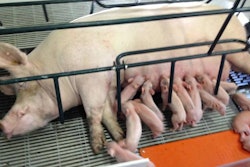Israeli startup EQUInom has closed a $1.25 million financing round led by Hazera (1939) Ltd., a specialist in seed and field crops production. EQUInom utilizes novel computational breeding technologies in the breeding of seeds for the global food industry. The company has also signed an agreement with Obela, a joint venture of PepsiCo Inc. and Strauss Group Ltd., to cooperate in a breeding program using EQUInom’s proprietary breeding process and technology. The financing will be used to accelerate the company’s plant-protein seed breeding program through bioinformatics, genomics and phenomics. The company has raised a total of $2.25 million to date including the latest round.
EQUInom’s experts have developed a unique breeding process that integrates the massive use of DNA sequencing data with phenotype data (the observable characteristics) of the plant. Algorithms developed by the company identify parts of the DNA with breeding value, which are integrated to a final product in a unique breeding program. In this way, EQUInom has achieved levels of precision and speed of development previously unachievable. The technology allows the company to breed non-GMO varieties while achieving levels of accuracy and efficiency unfeasible in classical breeding processes. EQUInom is thus breeding healthier and cheaper new crops with reduced production costs.
EQUInom is currently engaged in the breeding of seeds that will create plant-protein-based products for mass consumption that will serve as improved and cheaper alternatives to soy bean based products, which are characterized by harmful substances, allergens and aftertastes. In early April 2016, market research consulting firm Mordor Intelligence published a comprehensive review of the plant protein market. The report stated that the plant protein market totaled around $7.7 billion in 2015 and would grow to more than $10 billion in 2020.
Foodtech startup EQUInom was founded in 2012 by Dr. Gil Shalev, who serves as CEO of the company. To date, EQUInom has developed varieties of sesame and quinoa that enable farmers to grow the two food crops at greater cost efficiency while enhancing their nutritional value. The company’s first products are currently in pre-commercial phases and will reach the market in the next two years.
Dr. Shalev said, “The bioinformatic technology and methodologies that we have developed allow us to simultaneously enhance and lower the cost of a broad spectrum of plant-based food products. EQUInom's proprietary developments make it possible to improve the probability of success of challenging plant breeding programs 10-fold, without changing the budget and while halving the program’s schedule compared with regular methods. Our algorithms enable us to identify and select genes with the objective of breeding varieties with maximum market value.”
According to the company, EQUInom’s technology makes it possible to precisely enhance the seed composition and quality, opening a new global era of plant breeding by adapting specialized crops for specific food products. As a result, food companies will be able to specify and obtain new raw materials that fit their needs.
“EQUInom envisions a new supply chain model for the global food industry. Food companies may imagine and specify new, healthier and more profitable varieties of plant-based nutrition, that have previously not existed. These varieties will be supplied by next generation seed companies - such as EQUInom - with high precision and at far lower production costs. For example, food companies may consider new, more nutritious and profitable kind of breakfast cereal and work directly with seed companies to create and produce a new variety of quinoa for the cereal, which will be cheaper for the consumer and include full protein," added Dr. Shalev.
“Today, the typical odds of success of many seed breeding programs are 5%-8%. Using EQUInom’s technology, the probability of success is improved 10-fold to 50%-80%, while halving development costs. The implication is that food companies will agree to invest in creating nutritious varieties that they could not previously imagine. This will result in new programs to grow healthier and tastier crops while reducing costs for consumers globally,” concluded Dr. Shalev.


















